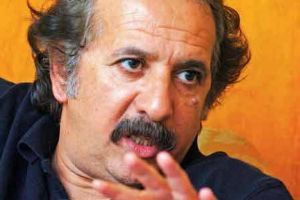
New Delhi, November 20: Celebrated Iranian director Majid Majidi has set his sights on the sweeping desert sands of Rajasthan for his epic on Prophet Mohammed. However India's chance to be part of cinematic history hangs in balance with permission for the shoot of "Prophet Mohammed (Peace Be With You)" pending before the Indian government for the last one month.
Government sources have expressed concern over the "sensitive" subject but Majidi appears unfazed by this bureaucratic challenge. Speaking exclusively to TOI, Majidi in an email interview said, "We are just shooting one scene in India... 99% of the film has already been shot in Iran. There is just one war sequence mentioned in the Quran that requires elephants in a desert region and since elephants are not found in Iran hence we were looking at India and Rajasthan as an viable location option."
The director is also planning to visit the country in December and hopes to shoot for the current film project in December or January. India has had a chequered history with film permissions. While James Bond "Skyfall" famous train sequence could not be shot in India because of delay in permissions, Katheryn Bigelow struck lucky and was able to recreate Pakistan's Abbottabad in India for her Osama flick "Zero Dark Thirty."
Known for critically Rain, Song of the Sparrows and Children of Heaven Majidi is unfazed. "We'd like to shoot in India because we really like the country. In fact I am planning to shoot a film in the future in India based on an Indian subject and we feel that shooting this scene will be a great experience to meet and work with the Indian technical cast and crew and get to know the country even better."
Speaking about the film the director who is busy with the last leg of shooting said, "The film has been shot completely in Iran. A huge set of Mecca and Medina has been created on the outskirts of Tehran. An international cast and crew has been working on this project for the last two years."
Majidi's line producers Mumbai-based Eyecandy Films who are coordinating permissions in India are hopeful that the shoot will materialise. Eyecandy's Shareen Mantri said, "It is a landmark film being made by one of the most respected directors in the world. We hope that this will pave the way for more international projects to be shot in India."
Among the international artistes who are associated with the project include set decorator of Emir Kusturica's tragic-farce Underground Aleksandar Denic and three-time Academy Award winning Italian cameraman Vittorio Storaro (Apocalypse Now, Reds etc) have been working on this project for the last two years. The Oscar winning VFX supervisor Mr. Scott Anderson (Adventures of Tintin, King Kong, Terminator 2 etc) is doing our visual effects on the film.




Comments
Add new comment